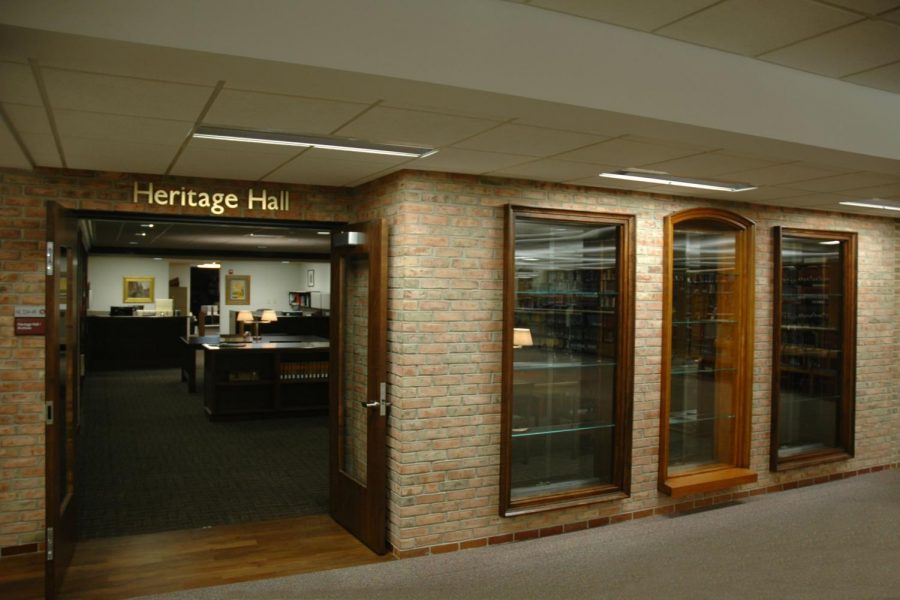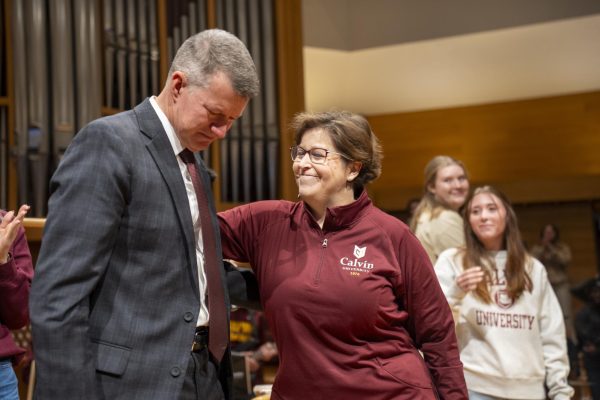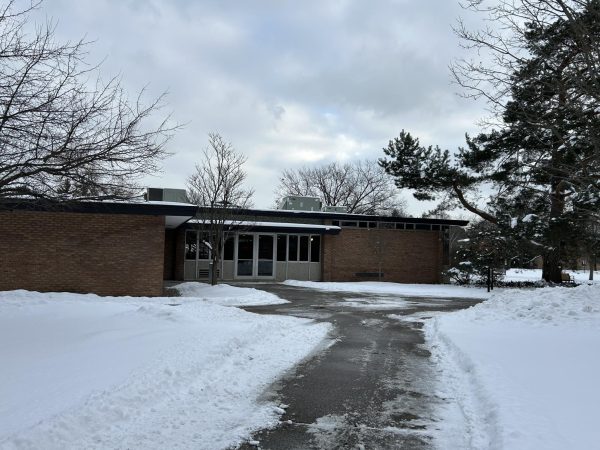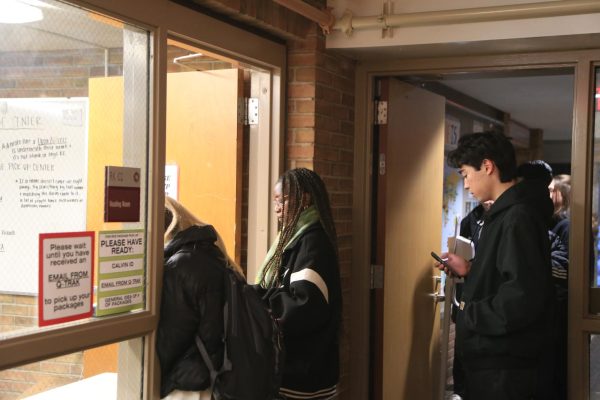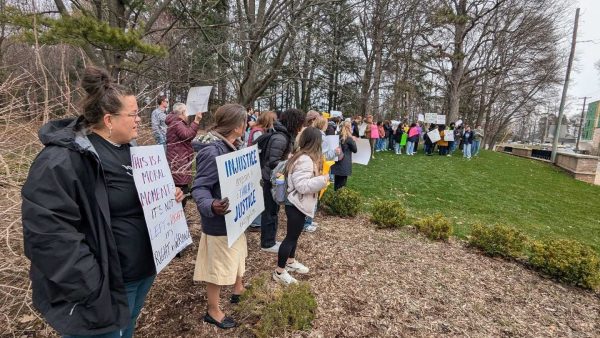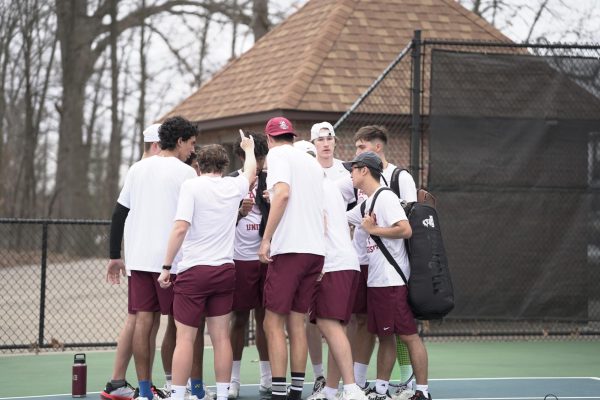New archives director pursues digitization and student access
The archives of the CRC, as well as many other archives, are housed in Heritage Hall in Hekman Library. Photo courtesy Calvin.edu.
Denice Fett has taken over for Richard Harms as curator of the archives, located in Heritage Hall inside Hekman Library. She has plans to increase access for students and the broader academic, denominational and historical communities to the collections through digitization, academic institutes and conferences, as well as adding two new student internships to be offered in the spring.
The Heritage Hall vaults consist of three rooms of shelves, each shelf containing about six cubic feet of material. These shelves hold information ranging from personal documents of individuals associated with Calvin College, Calvin Seminary or the CRCNA denomination to church records, home and foreign mission organizations.
The scope of information housed in the archives is vast ranging from the local everyday to records of national and international events.
“If someone asked for the meeting minutes of the English department from 1987, it would take us about 15 minutes to find them,” said Fett. The personal records collection, for example, includes documents and effects from Dutch resistance fighters during World War II, letters from the United States Civil War and accounts from missionaries serving in China during the Chinese Civil War in the 1920s.
“In terms of comprehensiveness,” Fett commented, “I would put [Heritage Hall] up there as one of the country’s leading archives for Dutch immigration to North America” and denominational records. “Other denominations haven’t put as much work into preserving their history.”
However, Fett noted that this wealth of information is widely undiscovered in the broader academic and historical community.
“We’re not on the radar,” said Fett, “and I want to change that.”
Heritage Hall resources that are currently accessible online through Hekman are “minimal” according to Fett. So she said digitization will be a priority in her plans.
Fett’s perspective stems from seven years of experience as a faculty member at the University of North Florida.
“I’m a professor, I’m a teacher, I want to get [students] engaged with the materials. Part of that is getting students in the door and part of that is expanding our digital platform,” said Fett.
Fett plans to start this process through two new internships that are going to be offered to Calvin students in the spring. One will focus on public history and the other on digital humanities. Interns will make online exhibits highlighting archive resources, using interactive maps and timelines for use in the classroom, local history settings and church classrooms.
These exhibits would not only benefit the communities and organizations that use them but the students who create them.
“Every job in the world will require some engagement at the digital level and how to present materials to people on a digital level to be engaging to be accessible. Those are skills that you can take anywhere,” Fett explained.
“And people thousands of miles away will be able to pull up our collections,” she added.
Another part of the digital engagement Fett envisions is making the catalogues more accessible by getting those sites indexed by Google and digitizing more of the archive material to make it accessible online. Currently, the vast majority of the records are in hard copy only.
The amount of work to be done can be overwhelming, Fett admitted, and she does not envision digitizing the entire collection.
“You could look at something like this and go out of your mind. So it is sitting down and thinking, ‘what could be used in a classroom, in a church, in a museum, in a local historical society and what is going to make people come through the door?’”
Fett intends to target certain collections based on timeliness, such as the anniversary of the end of World War I, or looking specifically at missionary records which might be particularly useful to researchers.
She also noted that digital humanities are incorporated into many of the courses at Calvin and she wants the archives to be more readily accessible to students in all majors.
The archives, according to Fett, are not solely for history or religion majors. English majors will appreciate collections of newspapers and magazines documenting a changing language, geography majors will find historical maps, music majors will find collections of music dating back decades. Researchers are encouraged to investigate photo and audio tape collections as well.
Heritage Hall has been transferring records from one form to another for a while now as part of their microfilm project — converting church records for confidentiality and easier access and storage in the future, but the move toward digitization will be progressing into a relatively new sphere.
Robert Bolt, a retired history professor at Calvin, also works in the archives as the CRCNA’s field agent for the Historical Committee of North America. He is engaged in the microfilming process and explained the value of these records in documenting conflict and how it assists conflict resolution and avoidance. Bolt and Fett both noted the importance of Heritage Hall as contributing to a sense of identity within the Calvin and CRC community.
“We think that by keeping these [records] we have some idea as to where we came from and that’s important … There is a kind of heritage that is kept then … and we historians like to think if you know something about the past you can better look to the future.”




